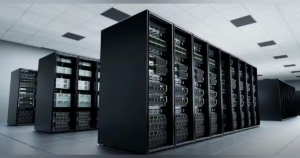Plastic pollution has emerged as one of the most pressing environmental challenges of our time. With its widespread use and persistent nature, plastic waste poses significant threats to ecosystems, wildlife, and human health. Addressing this issue requires comprehensive strategies that encompass reduction, recycling, and innovation. In this article, we will explore the multifaceted approach to combating plastic pollution and highlight the role of plastic recycling machines in this endeavor.
Understanding the Problem
Sources and Impact of Plastic Pollution
Plastic pollution stems from various sources, including single-use plastics, plastic packaging, and industrial waste. These plastics find their way into rivers, oceans, and landfills, where they degrade slowly, releasing harmful chemicals and endangering marine life. The scale of the problem is immense, with millions of tons of plastic entering the environment each year.
Key Strategies for Reduction
Regulatory Measures
Reducing plastic pollution requires a combination of regulatory measures, consumer education, and corporate responsibility. Governments can implement policies such as bans on single-use plastics, extended producer responsibility schemes, and incentives for eco-friendly alternatives.
Consumer Education
Educating the public about the environmental impact of plastic consumption can promote behavior change and encourage sustainable choices. By raising awareness about the importance of reducing plastic waste, individuals can make informed decisions and adopt environmentally friendly practices in their daily lives.
Corporate Responsibility
Businesses play a crucial role in reducing plastic waste through product redesign, packaging innovation, and waste management practices. By embracing sustainable practices and investing in circular economy solutions, companies can minimize their environmental footprint and contribute to a more sustainable future.
The Role of Plastic Recycling Machine
Transforming Waste into Resources
Plastic recycling machine play a vital role in mitigating plastic pollution by transforming waste plastic into reusable materials. These machines employ various technologies to sort, shred, melt, and extrude plastic waste, turning it into pellets or flakes that can be used in the production of new products.
Types of Plastic Recycling Machines
There are several types of plastic recycling machines, each suited to different types of plastic waste and recycling processes. Plastic shredders break down large plastic items into smaller pieces for easier processing, while plastic extruders melt and reshape plastic flakes or pellets into new products. Sorting machines use sensors and algorithms to separate different types of plastics based on their composition and color, facilitating efficient recycling.
Benefits of Plastic Recycling Machines
Plastic recycling machines offer numerous benefits in the fight against plastic pollution. They help divert plastic waste from landfills and incinerators, reduce energy consumption compared to producing new plastics, and contribute to a circular economy by substituting for virgin plastics in various applications.
Challenges and Opportunities
Addressing Challenges
Despite their benefits, plastic recycling machines face several challenges, including the complexity of plastic waste streams, contamination issues, and the need for infrastructure investment. Addressing these challenges requires collaboration between governments, industries, and communities to improve recycling infrastructure, develop innovative technologies, and promote market demand for recycled plastics.
Technological Advances
Fortunately, advances in recycling technology, such as automation, artificial intelligence, and machine learning, hold promise for enhancing the efficiency and effectiveness of plastic recycling processes. By harnessing these technological innovations, we can overcome challenges and unlock new opportunities for sustainable plastic recycling.
Conclusion
Combatting plastic pollution requires a concerted effort from all sectors of society, encompassing regulation, education, innovation, and technology. Plastic recycling machines play a crucial role in this endeavor by enabling the efficient recycling of plastic waste and the creation of a more sustainable future. By implementing comprehensive strategies and harnessing the power of recycling technology, we can reduce plastic pollution, protect the environment, and preserve the planet for future generations.










